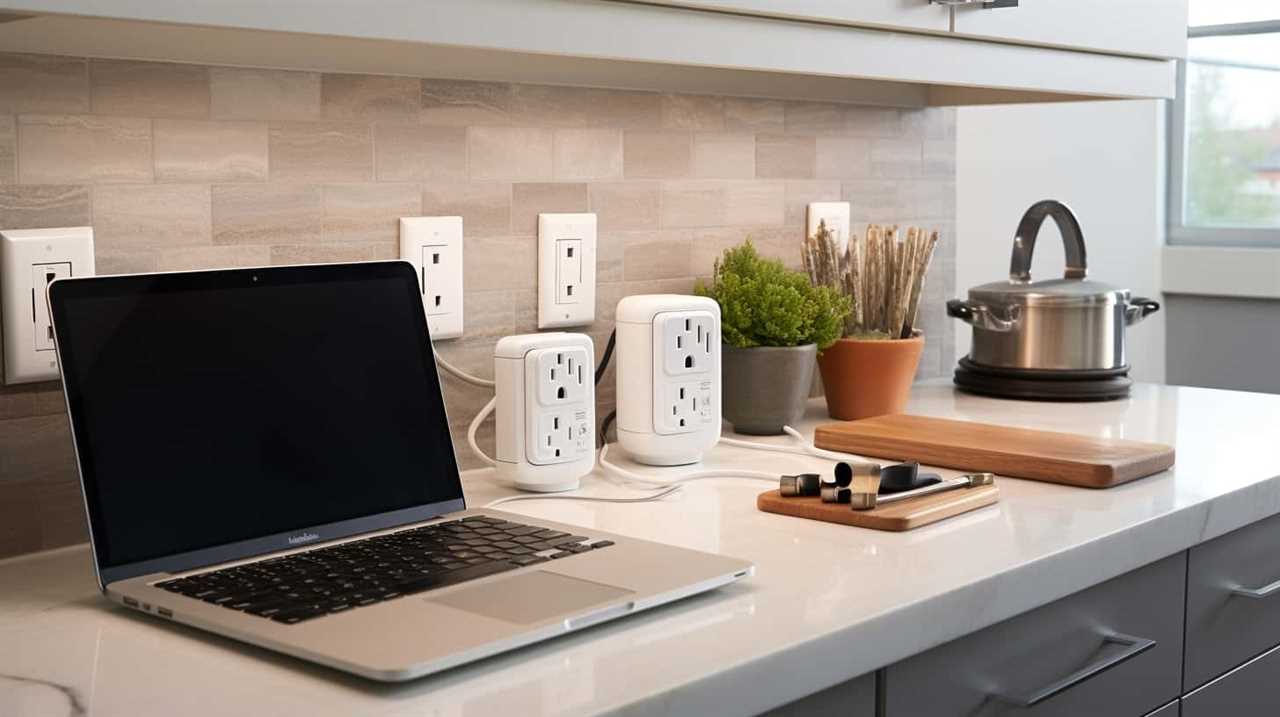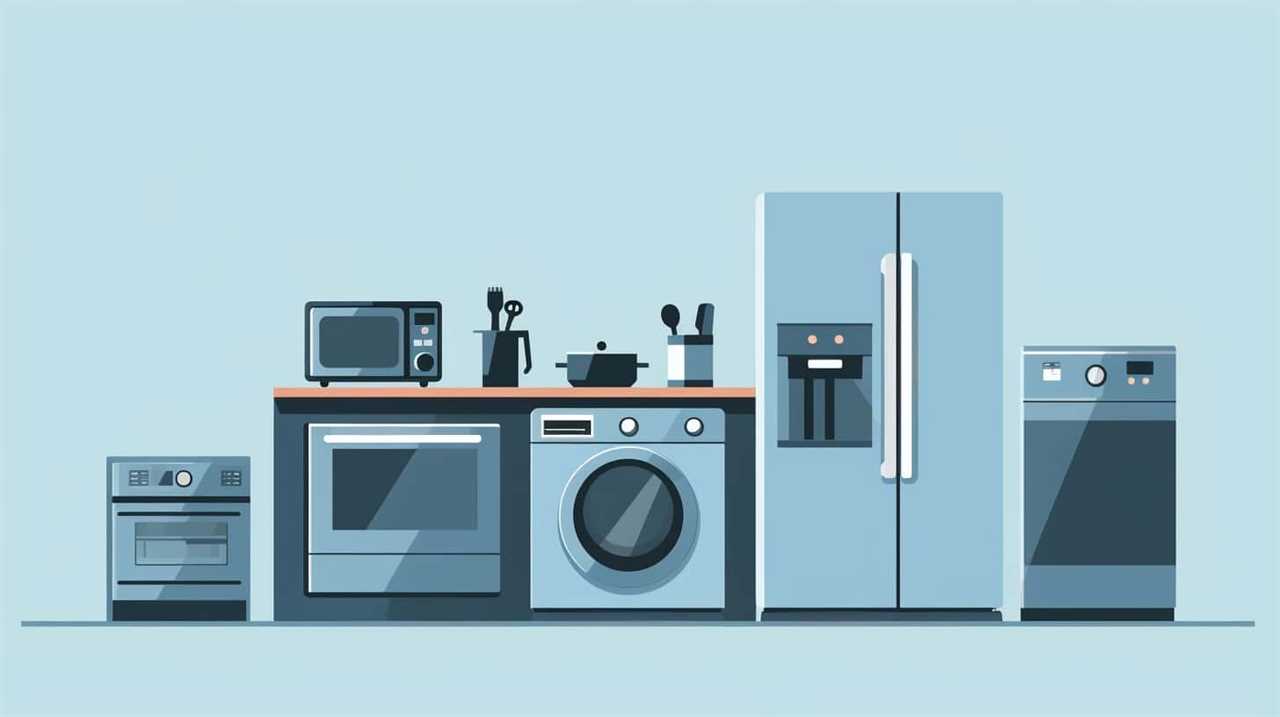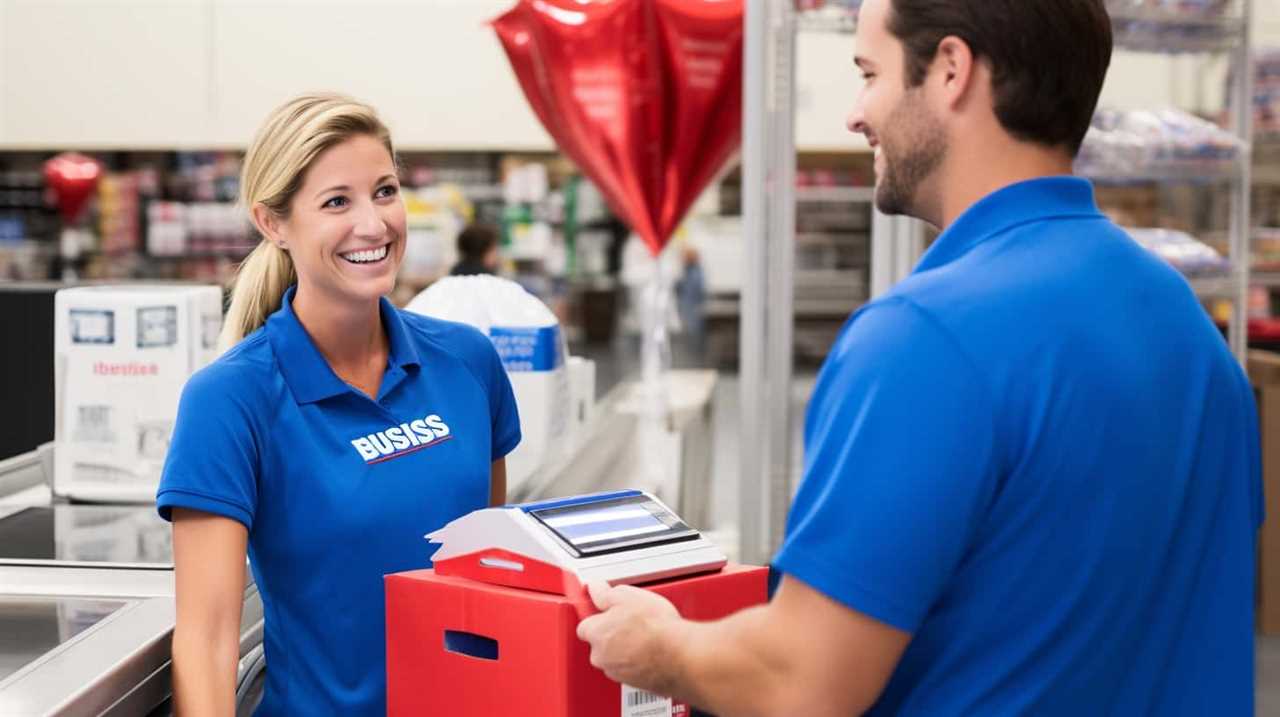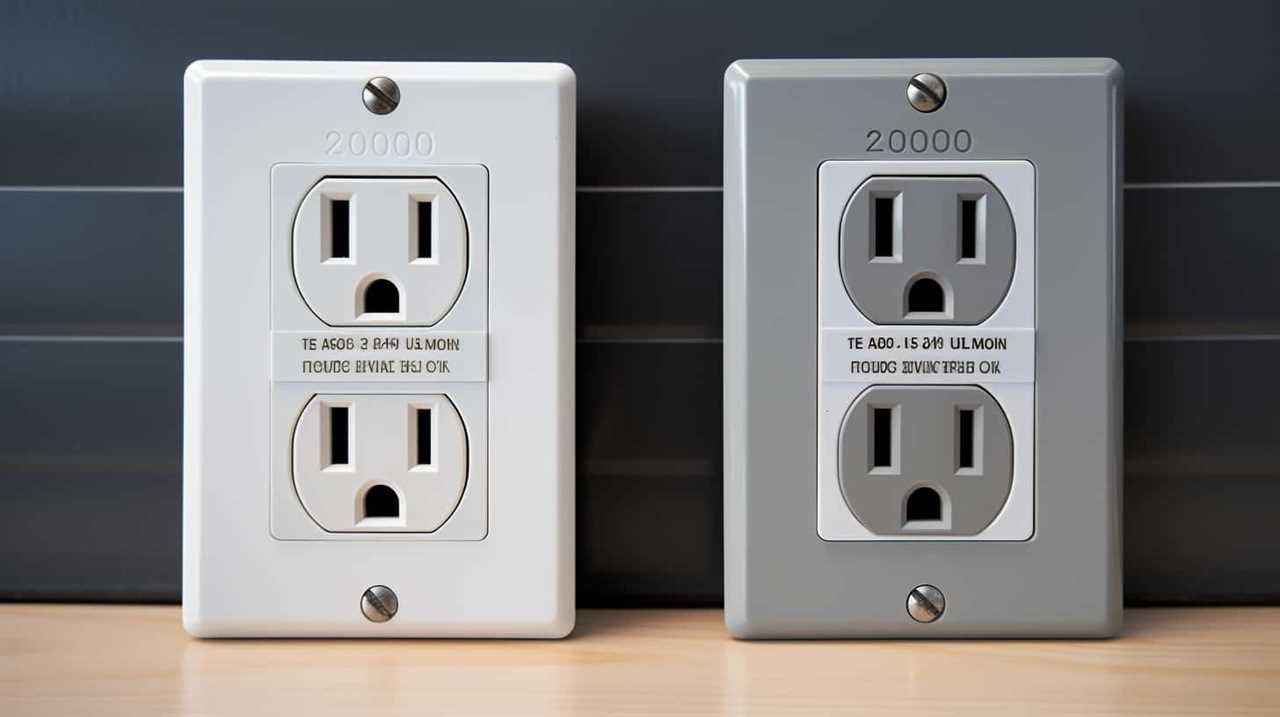Alright everyone, it’s time to explore the realm of appliance safety training and regulations. We’ve all experienced our fair share of appliance accidents, from out-of-control toasters to microwaves causing electrical chaos. However, do not worry, as today we will discover the top 6 best practices that will make us experts in appliance safety. Say goodbye to burnt toast and blender malfunctions!
In this guide, we’ll cover everything from understanding safety standards to identifying common hazards. We’ll also explore how to implement effective training programs and ensure compliance with regulations. And of course, we’ll discuss the importance of regular inspections and how to handle appliance emergencies like a pro.
So buckle up, folks, because it’s time to take charge of our appliances and make safety a top priority!
Key Takeaways
- Appliance safety standards and compliance are essential for ensuring safe operation and usage of appliances.
- Regular inspections, safety training programs, and internal audits help maintain compliance with safety regulations and reduce the risk of accidents and penalties.
- Effective safety training programs should be interactive, utilize multimedia tools, and cover product standards, labeling requirements, and safety protocols.
- Regular appliance functionality assessments and inspections help identify potential safety hazards, prevent accidents, and extend the appliance lifespan.
Understanding Appliance Safety Standards
Understanding appliance safety standards is crucial for ensuring the safe operation and usage of appliances. Adhering to appliance safety guidelines and obtaining appliance safety certification is essential to protect both users and property from potential hazards. These standards are established to ensure that appliances are designed, manufactured, and tested in a way that minimizes the risks associated with their use.

Appliance safety guidelines provide manufacturers with specific requirements and recommendations to follow during the design and production process. These guidelines cover various aspects such as electrical safety, mechanical safety, thermal safety, and chemical safety. By complying with these guidelines, manufacturers can ensure that their appliances meet the necessary safety standards.
Appliance safety certification, on the other hand, involves a third-party evaluation of an appliance’s compliance with safety standards. This certification process typically includes rigorous testing and inspection to ensure that the appliance meets all the necessary requirements. It serves as an assurance for consumers that the appliance has undergone thorough safety checks and is safe to use.
By understanding appliance safety standards, manufacturers can design appliances that are safe and reliable. Consumers, on the other hand, can make informed decisions when purchasing appliances, knowing that they’ve been certified to meet the necessary safety standards.
Ultimately, a comprehensive understanding of appliance safety standards promotes the safe operation and usage of appliances, minimizing the risk of accidents and injuries.

Identifying Common Appliance Hazards
Identifying common appliance hazards is essential for ensuring the safety of users and minimizing the risk of accidents and injuries. By understanding the potential dangers associated with various appliances, we can take the necessary steps to prevent accidents and create a safer environment for users.
Common appliance hazards can include electrical shocks, burns, fires, and mechanical injuries. Electrical shocks can occur when there’s faulty wiring or improper grounding of the appliance. Burns can result from hot surfaces, steam, or contact with heated components. Fires can be caused by overheating appliances, faulty electrical connections, or flammable materials placed too close to the appliance. Mechanical injuries can occur due to moving parts, such as blades or rotating drums, which can trap fingers or clothing.
To address these hazards, it’s crucial to comply with appliance safety standards. These standards provide guidelines for manufacturers to design and produce appliances that minimize the risk of accidents. They cover various aspects, including electrical safety, thermal protection, and mechanical guarding.
By identifying common appliance hazards and adhering to safety standards, we can effectively mitigate risks and prevent accidents.

In the next section, we’ll discuss implementing effective safety training programs to ensure that users are knowledgeable and equipped to handle appliances safely.
Implementing Effective Safety Training Programs
Our approach to implementing effective safety training programs ensures that users are equipped with the knowledge and skills necessary to handle appliances safely. We understand that traditional training methods can be boring and ineffective. That’s why we believe in implementing interactive training that engages participants and promotes active learning.
One of the key elements of our training programs is incorporating real-life scenarios. We believe that by simulating various situations, users can develop the critical thinking skills needed to assess risks and make informed decisions. Through these scenarios, participants can practice identifying potential hazards, understanding safety protocols, and applying appropriate actions.
To enhance the interactive nature of our training, we utilize multimedia tools, such as videos and simulations, to create a realistic learning experience. By immersing participants in different scenarios, we can effectively demonstrate the consequences of unsafe practices and reinforce the importance of following proper safety procedures.

Moreover, our training programs are designed to encourage participation and collaboration among participants. Through group exercises and discussions, users can share their experiences, ask questions, and learn from each other’s insights. This collaborative approach fosters a sense of responsibility and empowers participants to take an active role in ensuring safety in their everyday appliance use.
Ensuring Compliance With Regulations
When it comes to ensuring compliance with regulations, there are a few key essentials to keep in mind.
First and foremost, understanding the regulatory requirements is crucial in order to avoid any legal issues.
Implementing training programs that focus on legal compliance can help employees stay informed and up to date on the necessary safety measures.

Regulatory Compliance Essentials
By implementing thorough training programs, we ensure that our team is well-equipped to comply with regulations governing appliance safety.
To ensure regulatory compliance, we focus on the following essentials:
- Stay updated with regulation changes: Regularly review and stay informed about any updates or changes in safety regulations to ensure that our practices align with the latest requirements.
- Conduct regular safety training: Regular training sessions are conducted to educate our team on the current regulations and best practices for appliance safety. This ensures that they’re well-informed and equipped to follow the necessary guidelines.
- Perform internal audits: Regular internal audits are conducted to assess our compliance with regulations. This helps identify any gaps or areas that need improvement, allowing us to take corrective actions promptly.
- Maintain documentation: Keeping detailed records of safety training sessions, audits, and compliance measures is essential. This documentation serves as proof of our commitment to regulatory compliance and helps us demonstrate our adherence to safety standards.
Training for Legal Compliance
To ensure legal compliance with regulations, we prioritize training our team on the necessary guidelines for appliance safety. Training methods play a crucial role in equipping our employees with the knowledge and skills they need to meet the legal requirements.
Our training programs are designed to cover all relevant legal aspects, including product standards, labeling requirements, and safety protocols. We utilize a combination of classroom training, hands-on exercises, and role-playing scenarios to provide comprehensive instruction. By incorporating real-life examples and case studies, we enhance the understanding of legal compliance among our team members.

Regular updates and refresher courses are conducted to keep everyone up to date with the ever-evolving legal landscape. We believe that a well-trained and informed team is essential for maintaining compliance with the constantly changing legal requirements.
Ensuring Regulatory Safety
Prioritizing regulatory safety involves implementing robust measures to ensure compliance with regulations and promoting a culture of safety within our organization. To ensure regulatory compliance and maintain a safe working environment, we follow these best practices:
- Stay updated on regulatory enforcement: We closely monitor changes in regulations and stay informed about any new requirements or updates.
- Develop comprehensive safety protocols: We establish clear guidelines and protocols to address potential hazards and ensure that all employees are aware of and adhere to these protocols.
- Conduct regular safety audits: We regularly conduct audits to assess our compliance with regulations and identify any areas that need improvement.
- Provide ongoing training and education: We invest in continuous training programs to ensure that all employees have the necessary knowledge and skills to maintain a safe working environment.
Conducting Regular Appliance Inspections
Regular appliance inspections are crucial for ensuring the safety of both employees and customers. By conducting frequent inspections, we can identify any potential issues or malfunctions before they escalate into serious hazards.
These inspections also help us maintain compliance with safety regulations, providing peace of mind and a safer environment for everyone involved.

Importance of Frequent Inspections
We highly emphasize the significance of conducting frequent inspections for appliance safety training and regulations. Regular inspections play a crucial role in ensuring the safety and functionality of appliances.
Here are the benefits of conducting inspections on a regular basis:
- Identifying potential safety hazards: Regular inspections allow for the early detection of any issues that could pose a safety risk, such as faulty wiring or worn-out components.
- Preventing accidents and injuries: By proactively addressing potential safety hazards, regular inspections help prevent appliance-related accidents and injuries, ensuring the well-being of both users and technicians.
- Extending appliance lifespan: Identifying and addressing minor issues during inspections helps to prevent major breakdowns and prolong the lifespan of appliances, saving both time and money on repairs or replacements.
- Complying with regulations: Frequent inspections ensure compliance with safety regulations, avoiding penalties and legal issues.
Ensuring Appliance Functionality
To maintain optimal appliance performance, it’s essential to regularly assess their functionality through inspections. Regular appliance maintenance is crucial for ensuring that appliances are operating efficiently and safely. By conducting regular inspections, potential issues can be identified and addressed before they escalate into major problems.
During inspections, it’s important to use effective troubleshooting techniques to identify any underlying issues. This involves checking for any signs of wear and tear, loose connections, or abnormal noises. Additionally, inspecting the appliance’s components, such as filters, belts, and motors, can help ensure that they’re in good working condition.

Regular inspections not only help to maintain functionality but also contribute to prolonging the lifespan of appliances. By addressing any issues promptly, repairs and replacements can be made before they become more costly and time-consuming.
Compliance With Safety Regulations
Conducting routine appliance inspections is a crucial step in ensuring compliance with safety regulations. To maintain a safe working environment, it’s essential to regularly assess your appliances for potential risks and address them promptly. Here are four reasons why appliance safety audits are vital:
- Identifying hazards: Regular inspections help identify any potential hazards or malfunctions that may compromise the safety of your appliances.
- Preventing accidents: By detecting and addressing safety issues in a timely manner, you can significantly reduce the risk of accidents and injuries in the workplace.
- Ensuring compliance: Adhering to safety regulation updates is crucial to avoid penalties and legal consequences. Regular inspections help ensure that your appliances meet the required standards.
- Enhancing efficiency: Inspections can also identify areas where appliances can be optimized, leading to improved performance and energy efficiency.
By conducting regular appliance inspections, businesses can proactively address safety concerns, maintain compliance with regulations, and reduce the risk of accidents.
Now, let’s explore the next topic: responding to and managing appliance emergencies.

Responding to and Managing Appliance Emergencies
When faced with appliance emergencies, it’s crucial to prioritize safety and act swiftly. Emergency response and safety protocols play a vital role in effectively managing these situations.
In the event of an appliance emergency, the first step is to ensure the safety of all individuals present. This may involve evacuating the area or turning off the power supply to prevent further damage or harm. It’s essential to have clear and well-communicated emergency procedures in place, so that everyone knows what to do in the event of an emergency.
Once the immediate safety concerns have been addressed, it’s necessary to assess the situation and determine the appropriate course of action. This may involve contacting emergency services or trained personnel who can provide assistance. It’s important to have a designated point person or team responsible for coordinating the response and managing the emergency.
Regular training and drills should be conducted to ensure that all individuals involved are familiar with the emergency response protocols and know how to execute them effectively. This includes understanding how to use fire extinguishers or other safety equipment, as well as knowing when to evacuate and when to stay in place.

Frequently Asked Questions
How Can I Ensure That My Employees Are up to Date on the Latest Appliance Safety Standards?
To ensure our employees are up to date on the latest appliance safety standards, we prioritize continuous education and training effectiveness. By regularly providing training sessions and resources, we keep our team informed about the latest regulations and best practices.
This allows them to develop a mastery of appliance safety and stay ahead of any potential risks. Our commitment to ongoing education ensures that our employees are well-equipped to handle any safety challenges that may arise.
Are There Any Specific Appliances That Are Exempt From Safety Regulations?
There are some appliances that are exempt from safety regulations, but it’s important to note that these exemptions are specific and limited. Exceptions may exist for certain appliances that are considered low-risk or have unique operating characteristics.
However, it’s crucial to consult the relevant regulatory authorities to determine the specific exemptions applicable to your industry and location.

Ensuring compliance with safety standards for all appliances is essential to protect employees and maintain a safe work environment.
What Should I Do if I Discover a Hazardous Appliance During a Regular Inspection?
If we discover a hazardous appliance during a regular inspection, our first priority is to ensure the safety of ourselves and others. We should immediately isolate the appliance and remove any potential sources of danger.
Next, we should report the discovery to the appropriate authorities and follow their guidance on proper handling of hazardous appliances.
It’s crucial to document the incident and any actions taken for future reference and to prevent similar incidents from occurring.

How Often Should Safety Training Programs Be Conducted to Maintain Compliance With Regulations?
To maintain compliance with regulations, it’s crucial to conduct safety training programs at the appropriate frequency. Regular training sessions ensure that employees are up to date with the latest safety protocols and regulations. By staying informed, we can mitigate risks and create a safer working environment.
The frequency of training programs may vary depending on the industry and specific regulations. However, it’s generally recommended to conduct safety training on a regular basis to ensure ongoing compliance and a culture of safety.
What Are the Consequences of Non-Compliance With Appliance Safety Regulations?
Non-compliance with appliance safety regulations can have severe consequences. The importance of these regulations can’t be overstated. Failure to comply may result in accidents, injuries, or even fatalities.
Additionally, non-compliance can lead to legal penalties, fines, and damage to a company’s reputation. It’s crucial to prioritize appliance safety and ensure that all regulations are followed diligently.

Conclusion
In conclusion, implementing effective appliance safety training programs and ensuring compliance with regulations are crucial for preventing accidents and injuries.
According to a recent study, approximately 60% of appliance-related accidents can be attributed to lack of proper training and non-compliance with safety regulations. Therefore, it’s imperative for organizations to prioritize appliance safety training to reduce the risk of incidents and create a safe working environment for employees.
Regular inspections and prompt response to emergencies further enhance the overall safety of appliances.










